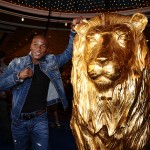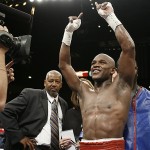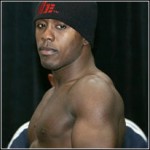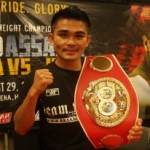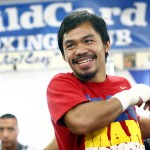If Margarito wants a license, he needs to show up and explain himself
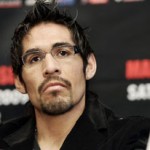
Anybody seen Antonio Margarito lately? Anybody heard from him? There have been more Tiger Woods sightings during the last three months than there have been of Margarito in more than a year. Margarito has vanished, almost as if he’s in hiding.
In the court of public opinion, it’s a bad idea, especially if he ever hopes to be licensed in the United States again. Fair or not, there is talk he is hiding because there is something to hide.
Out of sight, but not of mind.
Questions continue about why, not whether, his gloves were loaded 13 months ago before a loss to Shane Mosley in Los Angeles. Some people want him to apologize. I just want to hear an explanation, straight and unvarnished, from Margarito. He needs attorney Daniel Petrocelli for the legalese required in appearances before the California State Athletic Commission or the Texas Department of Licensing and Regulation or some other bureaucracy.
But legal arguments won’t erase deep-seated skepticism about his claim that he had no idea disgraced ex-trainer Javier Capitello put some plaster-like substance into wraps that would turn gloves into weapons of mass destruction. Nobody who has ever worn gloves believes that one. Nobody who has ever worn shoes believes it either. I’ve said it before and I’ll say it again: If there’s a rock in your shoe, you know it.
I have no idea how Margarito would answer the questions. Until he does, however, it’s impossible for me to say that he should be re-licensed. If he can’t stand up and argue for himself, how can anybody argue for him?
He didn’t fight anywhere for a year. That was the idea when California revoked his license on Feb. 10, 2009. He did what he had to. He did the time. But the process is incomplete without an explanation that may – or may not – serve as the final punctuation in this ongoing controversy.
Top Rank’s plans for him to fight on the March 13 card featuring Manny Pacquiao and Joshua Clottey at Cowboys Stadium in Dallas were dropped because of pressure on Texas not to grant him a license. It just wasn’t going to happen.
His Texas application is still pending, but it doesn’t figure to go anywhere until he first re-applies in California. Even if he does that, there will be controversy that only he can address. If – as tentatively planned — Margarito fights on May 8 in Mexico, it would only be a further complication. Regulators in California or Nevada or Texas or Arizona probably would see the move as another way to duck the questions. He’s being doing a lot of that.
During the week before Pacquiao’s victory in November over Miguel Cotto in Las Vegas, he was scheduled to make an appearance at a nearby shopping mall. I and couple of other sportswriters jumped into a car and rushed out to meet him. He had been there. But by the time we arrived, he had vanished, which is what will happen to Margarito’s career if he doesn’t show up and practice some accountability.
Between Cotto’s victory over Clottey in June and his loss to Pacquiao, there had been a lot of talk about a Cotto-Margarito rematch. To this day, nobody knows whether Margarito’s gloves were similarly armed, locked and loaded in his stunning beat-down of Cotto.
But talk of a rematch, like Margarito, has vanished. Cotto told the English-speaking press that he would be interested in rematch. Then, he was quoted in the Spanish-speaking press as saying there was no way he would help Margarito make money.
Let’s just say that Cotto has his own suspicions.
Until we hear from Margarito, that’s all anybody has.
NOTES, QUOTES
· High school senior Jose Benavidez, a junior-welterweight from Phoenix, continued to impress by scoring two knockdowns in first-round stoppage of John Michael Vega Saturday night on the undercard of super-flyweight Nonito Donaire’s third-round KO of Manuel Vargas at the Las Vegas Hilton. Benavidez’ next fight is scheduled for the Pacquiao-Clottey weekend. He could appear on the undercard at Cowboys Stadium. But the place probably would be empty for bout early on the card. Instead, Benavidez (2-0, 2 KOs), who has Pacquiao trainer Freddie Roach in his corner, might fight on a Dallas card Friday night in smaller room where people would see him. And remember him.
· Olympic swimmer Michael Phelps, who won a record eight gold medals at the Beijing Olympics, has added some boxing drills to his training regimen. He’s not the first. Swimmer Gary Hall Jr., a 10-time medalist over three Olympics, put on gloves and hit the heavy bags for years. Hall, who taught heavyweight Earnie Shavers’ kids how to swim, was a fight fan. Hall, a sprinter, said the regimen helped strengthen his muscles and improved his reaction time off the starting blocks.
